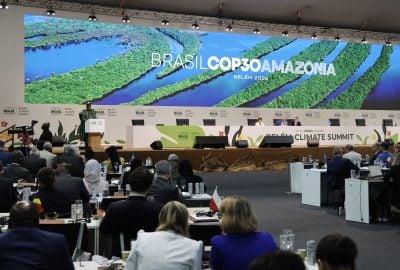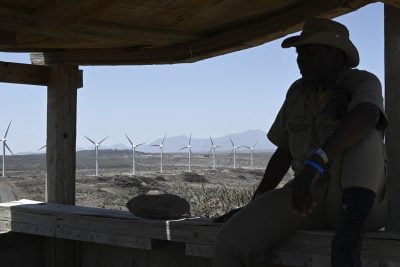African Business: What risks and opportunities do you see for Africa as a result of the Russia-Ukraine war?
Alex Vines: This is a big question. There’s a danger globally that we’re going into a binary world of democracies and autocracies. And one of the things that African peoples and leaders need to be vigilant about is not to get pigeonholed into that logic. Which is why I think we’re seeing a resurgence of the fundamental instincts that are predominant on the African continent, which is non-alignment.
Being non-aligned was the default position for the majority of African countries in the Cold War and I think we’re going to see a resurgence of this now. Non-alignment is much more comfortable than being pigeonholed as part of a Western position or indeed an Eastern position.
Should Africa be taking a side and how are these developments playing out?
At the United Nations General Assembly vote condemning the Russians, the majority African position was abstention. Or if you’re a country like Ethiopia, you walked off and had a coffee – they didn’t even vote.
What’s more telling is the more recent UN General Assembly vote on the Human Rights Council membership of Russia. There, the majority position [of African countries] was abstaining or not voting, but a few more African countries did oppose that resolution. I was surprised, for example, that Gabon signed up to that – whereas for Eritrea, the Central African Republic, Mali and Zimbabwe, you’d have expected it.
The broader question of whether Africa should be aligned is a good one, and I think already before the Russian invasion of Ukraine we were moving into a period of heightened geopolitical rivalries and attempts by both China and Russia but also the USA and the West to get Africans to choose sides.
I think the African position should be one of multipolarity, to choose an à la carte menu, rather than a set menu. At the end of the day, for an African state, choice is more useful – to be able to see what value you can extract, rather than be tied to a set menu in which you’re obliged to do certain things in return and in which you have less agency.
This is an important moment for Africa in that it provides an opportunity of choice that in recent years has probably been less available. This could be Africa’s moment in that regard.
Are there any obvious wins for Africa if it sticks to non-alignment?
The international system is changing. There’s more equality entering into it and that’s clearly important for Africa, which has been massively disadvantaged by a history of colonialism and under-development.
There are certain advantages from the Russian crisis for a number of states. One is greater desirability and wooing by both West and East – not just Russia but China – another is the spike of metal commodity prices. If you’re a producer of metals or strategic minerals, or of oil and gas, you’re very desirable. There’s upside there.
My hope is rather than geopolitical fragmentation of individual states there’ll be more collectivism at the African Union level and regional economic community level, with more bloc positioning as to the advantages they may extract with international partnerships. That will give more power in terms of geopolitical negotiating.
We’ll have to see – the building blocks of the pan-African African Union vision are in trouble. You see this in West Africa and Southern Africa – Ecowas and the SADC are struggling on security challenges they are facing.
Russia is increasingly economically isolated through sanctions. How will this impact Africa?
The commodity producers will certainly in the short term do better. Oil is over $100 a barrel and that’s very good news for a country like Angola in the short term, and gas becomes much more strategically important with Europe looking to diversify away from Russian gas. We’re seeing plans for a high-level Italian delegation to go to Mozambique. ENI is regarding its gas assets in Mozambique as incredibly strategic. Before the invasion of Ukraine they might have been considering selling them because they were exposed cost-wise with the investments on gas in Egypt.
This is a game-changer in the way that Europe in particular is looking at African energy to help in the energy transition. The same will be true for certain minerals that will help in the energy transition to net zero. This is where graphite and cobalt will become much more important – countries like DRC, and northern Mozambique will become more strategic.
Suddenly a number of African countries will be more important to Europe. Likewise, although we’re seeing a partial European retreat in the Sahel at the moment, in the longer term the Sahel will remain important and West Africa in particular, because it’s basically the European near abroad.
If you look at senior policymakers in Europe, they were saying a lesson from Covid is that extended supply chains to Europe were unsustainable, including farm production. So if you have more enabling business environments in West Africa, they’ll see inward FDI building up industrial capacity and capability because it’s basically Europe’s extended neighbourhood.
Do you see any other risks attached to rising commodity prices?
If you read the latest UNFAO report, their food price index is up by 34% on last year. We were already dealing with high inflation. I was in Malawi late last year and I stumbled into a riot in Blantyre over staple prices. They were blaming the new government there, but really it was about inflation and everything getting too expensive.
Since the invasion of Russia by Ukraine we have record wheat prices – 85% of Africa’s wheat is imported, a third comes from Russia and Ukraine. This is a serious problem for many African countries that need to import food. One of the trends which has been very visible in recent years has been the increasing restiveness of populations across the continent about their governments failing to provide services and safety nets for external shocks.
Unfortunately I think we’ll see more protests because people are going to find it difficult to survive, particularly in urban and peri-urban areas where there isn’t the ability to go and produce on smallholdings plots to feed yourself. Where you’ve got a struggling middle class for example. So there’s a massive knock-on from the Ukraine crisis on the African continent.
What might happen to Russian influence in Africa?
The Russian economy globally is just about the size of the Netherlands. The Russians travel lightly, they don’t have deep pockets. There are sectors where they are more involved – selling nuclear power, weapons, and a bit of mining. That’s it. The oil and gas story for Russia is out of the picture now. So what vaccuum is created by Russia’s inability to invest in the African continent will be taken up by others – India, South Korea, China will look at the opportunity. Some areas Africa will feel a bit of loss. The number of Africans going to Russia to study was growing. I don’t think it will be particularly attractive with the economic conditions in Russia now.
Who might step into the gap that might emerge?
Russia is going to be so occupied with Ukraine that even where it’s given security support, in countries like the Central African Republic and Mali, even that will be difficult to maintain at the levels they had. They’re withdrawing the Wagner Group personnel, and that’s something to look out for. Are there other countries which see that as an opportunity to contribute to multipolarity? [For Africa] it’s about a choice of different countries and how to balance them.
Listen to the full interview on our podcast Dr Alex Vines, Africa Programme Director, Chatham House: Russia’s invasion of Ukraine could be Africa’s moment
Want to continue reading? Subscribe today.
You've read all your free articles for this month! Subscribe now to enjoy full access to our content.
Digital Monthly
£8.00 / month
Receive full unlimited access to our articles, opinions, podcasts and more.
Digital Yearly
£70.00 / year
Our best value offer - save £26 and gain access to all of our digital content for an entire year!
 Sign in with Google
Sign in with Google 



